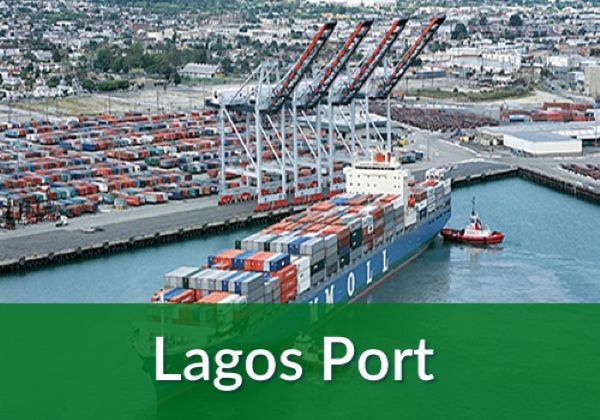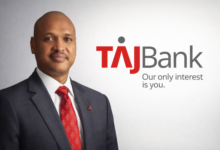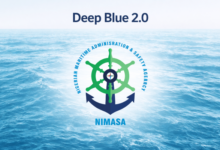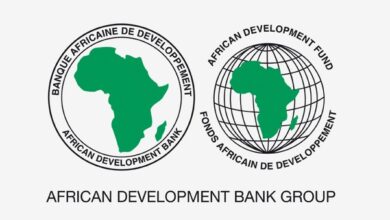
The All Progressives Congress (APC) has defended the Federal Government’s $1 billion investment in the Lagos Ports, describing it as a strategic national infrastructure project designed to reposition Nigeria as West Africa’s leading maritime hub.
The party dismissed criticisms from opposition figures who claimed that the Tinubu administration was neglecting ports in Warri, Calabar, Onne, and Port Harcourt, calling such assertions “uninformed and politically motivated.”
According to Mr. Seye Oladejo, APC’s Lagos State Spokesperson, the project reflects President Bola Tinubu’s Renewed Hope Agenda, which prioritizes modernisation, automation, and competitiveness across Nigeria’s maritime value chain.
“This is not a Lagos project—it’s a Nigeria project,” Oladejo said.
“The $1 billion investment is a forward-looking initiative attracting major global players like China Harbour Engineering Company and Singapore’s Tolaram Group, who believe in Nigeria’s renewed business environment under President Tinubu.”
Port Modernisation: Beyond Lagos, a Nationwide Agenda
The APC clarified that the Lagos port investment is only one piece of a broader national maritime modernisation blueprint spanning multiple coastal zones.
According to Oladejo, ongoing projects across the country include:
- Onne Port Modernisation: Equipment upgrades and digital transformation to improve logistics efficiency.
- Calabar Port Dredging: Deepening of channels to accommodate larger vessels and expand cargo capacity.
- Port Harcourt Port Rehabilitation: A concessionary restructuring aimed at restoring operational capacity.
- Warri Port Expansion: Development of a rail-integrated corridor to facilitate seamless inland cargo movement.
“Those who accuse the government of neglect should first study the facts,” Oladejo said.
“Work is ongoing in multiple locations simultaneously. What we’re seeing is not bias—it’s a national logistics reform strategy anchored on efficiency and global competitiveness.”
Why the $1bn Lagos Investment Matters
At the core of this maritime reform lies the Lekki Deep Sea Port, Nigeria’s first fully automated seaport, which has already set new benchmarks in port management, cargo turnaround time, and revenue generation.
The $1 billion investment—supported by international partners—aims to:
- Create thousands of direct and indirect jobs across Nigeria’s port and logistics ecosystem.
- Boost export competitiveness by reducing congestion and operational costs.
- Attract global shipping lines seeking efficient African gateways.
- Enhance government revenues through improved port throughput and compliance.
“The Lagos investment is economic foresight, not sabotage,” Oladejo explained.
“It’s about efficiency, jobs, and transforming Nigeria’s ports from bottlenecks to economic accelerators.”
Maritime Infrastructure as a Catalyst for Economic Growth
The APC maintained that the Tinubu administration’s maritime policy is holistic, focusing not only on infrastructure but also on policy integration, technology adoption, and regional trade facilitation.
Nigeria’s port inefficiencies have long been cited as a major constraint to non-oil exports, foreign direct investment (FDI), and supply chain competitiveness.
The modernization drive seeks to align Nigeria with emerging logistics hubs like Morocco, South Africa, and Ghana, whose streamlined systems have attracted significant international traffic.
Oladejo noted that the Tinubu administration’s vision aligns with the African Continental Free Trade Area (AfCFTA) agenda, positioning Nigeria as a trade gateway for the region.
“President Tinubu’s focus is on building a Nigeria that works—one port, one project, and one policy at a time,” Oladejo said.
“Governance is about vision, not sentiment. Strategy, not noise.”
BRANDECONOMY INSIGHT: Ports as the New Growth Frontier
Nigeria’s maritime sector accounts for nearly 70% of the nation’s trade value, yet chronic inefficiencies, delays, and outdated infrastructure have long limited its potential.
The current wave of public-private investments, led by the Lekki Deep Sea Port and ongoing port revamps, signals a shift toward a performance-based maritime economy.
With global trade routes evolving and West Africa’s coastal economies rising, modern, automated, and connected ports could become Nigeria’s new oil—the infrastructure backbone of a diversified, export-driven future.












